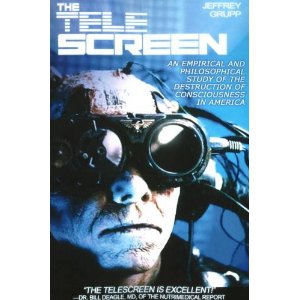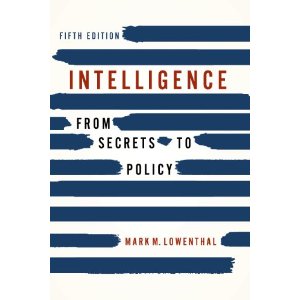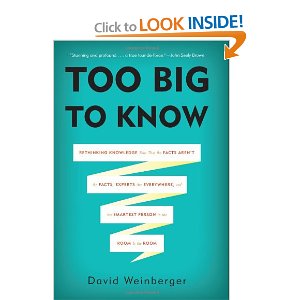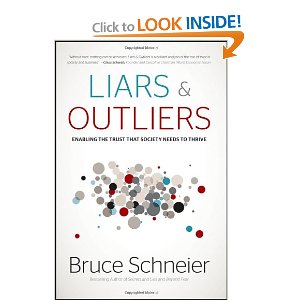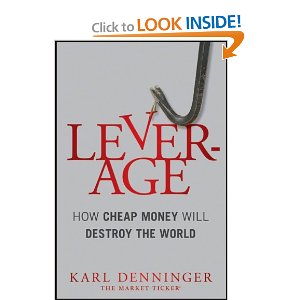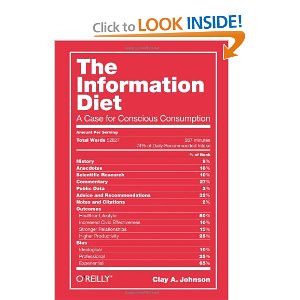
Clay Johnson
5.0 out of 5 stars Gift Book, Gift Idea, Gift Economy, Get a Grip,February 18, 2012
I received a copy of this book as a gift, and gladly so since the top review at this time is unfairly dismissive while also confessing that the reviewer only read the first third of the book (but evidently not the preface (first page) that states plainly (first sentence, actually), “The things we know about food have a lot to teach us about how to have a healthy relationship with information.”
Having just reviewed The Telescreen: An Empirical Study of the Destruction and Despiritualization of Consciousness, and so many other books here at Amazon, I easily connect the point in last night's reading: that food, medicine, education, and the media are all “co-conspirators” in dumbing down a human population whose brains started out as enormous pools of potential creativity, to this book. The information — and the food and the medicine and the tabloid garbage we are ingesting — is killing us.
What the first reviewer completely misses is that this is the first manifesto, beyond The Age of Missing Information, to actually focus on how out of control our relationship is to the world of information. As a lifetime professional in these matters I can state clearly that not only are governments substituting ideology for intelligence and corruption for integrity, but so are all the other communities of information (academia, civil society, commerce, government, law enforcement, media, military, and non-government / non-profit. We live in a totally corrupt world where — right now — banking families (Rothschild et al) own the banks and the banks own the two-party tyrannies (or the outright dictators) that own government, and they own the the corporations, with the 99% being expendable fodder for 1% theft from the commonwealth. This book is a cry from the heart, and an eloquent one at that.
Continue reading “Review: The Information Diet – A Case for Conscious Consumption”

